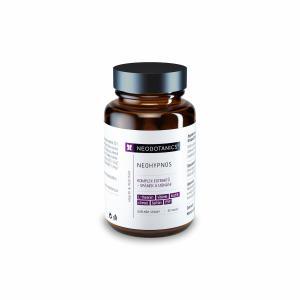
What Your Metabolic Age Says About Your Body and How to Reduce It

What Metabolic Age Says About Your Health and How You Can Positively Influence It
Imagine two people, both 45 years old. Both appear healthy, suffer from no diseases, and have a similar height and weight. Yet one can easily run up to the third floor, while the other is short of breath after just a few steps. The difference? It could be due to the so-called metabolic age – an indicator that more and more people are using as a measure of their true fitness and vitality.
While biological age is relentless and progresses equally for everyone, metabolic age reflects the internal aging of the body. In other words, how old your body feels and behaves – not what your ID card states.
What Exactly Is Metabolic Age and Why Does It Matter?
Metabolic age is a number that compares your basal metabolic rate (BMR) – the amount of energy your body uses at rest for basic life functions – with the average values for people of the same gender and age. If your metabolic age is lower than your chronological age, it means your body is functioning more efficiently than expected. Conversely, a higher value may be a warning that something isn't right.
Although it is not a medical diagnosis, metabolic age serves as a practical indicator of overall health. It hints at whether you have enough muscle mass, how effectively you burn energy, or how well you manage stress and recovery.
In a certain sense, it's similar to a car's technical inspection – it doesn't focus on how old the vehicle is, but how well-maintained it is and what its actual performance is.
Metabolic Age - Calculation, Tables, and Calculators
You may be wondering: how is metabolic age actually calculated? There is no single universal formula, and most common methods rely on calculating basal metabolism, which is influenced by age, gender, height, weight, muscle mass, and fat tissue.
At home, you can use simple online tools that estimate your metabolic age based on entered data (weight, age, height, waist circumference, etc.). You can search for them under terms like metabolic age calculator or metabolic age calculation online. However, take these numbers with a pinch of salt – they are more indicative.
More accurate measurements are offered by some smart scales with bioelectrical impedance analysis (BIA), which measure the proportion of fat, muscles, and water in the body. The greatest accuracy, however, is achieved by professional devices in nutrition counseling centers, fitness centers, or medical facilities.
If you are curious about whether it is "normal" to have a metabolic age of 45 at 40, a metabolic age table published by measuring device manufacturers can be helpful. Yet, take these tables as rough guides – every person is different and individual body performance cannot be permanently fixed into numbers.
What Increases Metabolic Age and Why Do We Age Faster?
It's no surprise that lifestyle has a huge impact on our metabolism. Lack of exercise, excess calories, sedentary jobs, lack of sleep, or frequent stress and alcohol lead to muscle mass loss and fat gain. The body then behaves biologically older, even if the calendar doesn't show it yet.
A striking example is nutrition. People who consistently eat processed foods, sugary drinks, and high glycemic index foods often have higher levels of insulin resistance – which can lead to faster metabolic aging.
Similarly harmful is a lack of quality sleep, which the body perceives as stress. The release of cortisol, the so-called stress hormone, contributes to the body storing more fats – especially in the abdominal area – and poorer recovery.
How to Lower Metabolic Age and Rejuvenate Your Body
The good news is that even if you're not happy with your metabolic age, it's not a permanent verdict. By changing certain habits, you can literally rejuvenate your body. There is no magic trick for this, but rather a series of small steps that together have a strong impact.
1. Regular Exercise:
The most effective way to improve metabolism is building muscle mass. Muscles burn more energy than fat even at rest, so a higher muscle mass automatically increases basal metabolism. It's not necessary to spend hours in the gym – the important thing is that the exercise is regular and varied: strength training, walking, cycling, swimming, yoga.
2. Quality Nutrition:
The foundation is a balanced diet with enough protein, fiber, and healthy fats. Eat more plant-based foods, whole grains, legumes, and nuts. Limit refined sugars and processed foods. Every meal should contain a source of protein, which supports muscle growth and maintenance.
3. Sleep and Stress:
Sleep is not a luxury, but a biological necessity. Adults ideally need 7–9 hours of quality sleep per day. Lack of rest slows recovery and increases hormone levels that promote fat storage. Learning to manage stress with breathing exercises, nature walks, or meditation can have a surprisingly strong impact on overall health.
Try our natural products
4. Hydration:
Excessive alcohol, caffeine, and sugary drinks do not benefit the body. Water is absolutely essential for optimal metabolic function. Dehydration slows down metabolism – and even a slight lack of fluids can affect performance and mood.
5. Consistency and Patience:
Metabolic age doesn't change overnight. But just as the body gradually tired from unhealthy habits over the years, it can also gradually recover and regenerate if given time and the right conditions.
When Technology Helps Motivation
Today, we have a range of smart helpers at our disposal. Fitness trackers, smartwatches, or the mentioned personal scales can measure not only step goals but also heart rate, sleep quality, or even estimated metabolic age. For many people, this is great motivation to track progress and stay on the right path.
For example, Mrs. Jana, 51, bought a smart scale that showed a metabolic age of 58 years. After half a year of regular exercise, healthy eating, and better sleep, the scale showed the number 47. "I can't say I did anything radical. I just started walking to work, stopped eating sweets in the evening, and worked out twice a week. The result motivated me more than the scale itself," she says.
And that is the essence of metabolic age – it's not just a number, but feedback on how you take care of yourself.
Experts remind us that it's important not to get stressed by numbers. Rather, use them as inspiration for change, not as a reason for fear. As renowned physiologist Dr. Michael Greger says: “The best way to slow down biological aging is to act every day as if your tomorrow depends on it – because it does."
Metabolic age is thus a valuable reflection of our lifestyle. And just like in a mirror, sometimes we see that it's time to adjust something, so here too, it can be the first step towards positive change.



